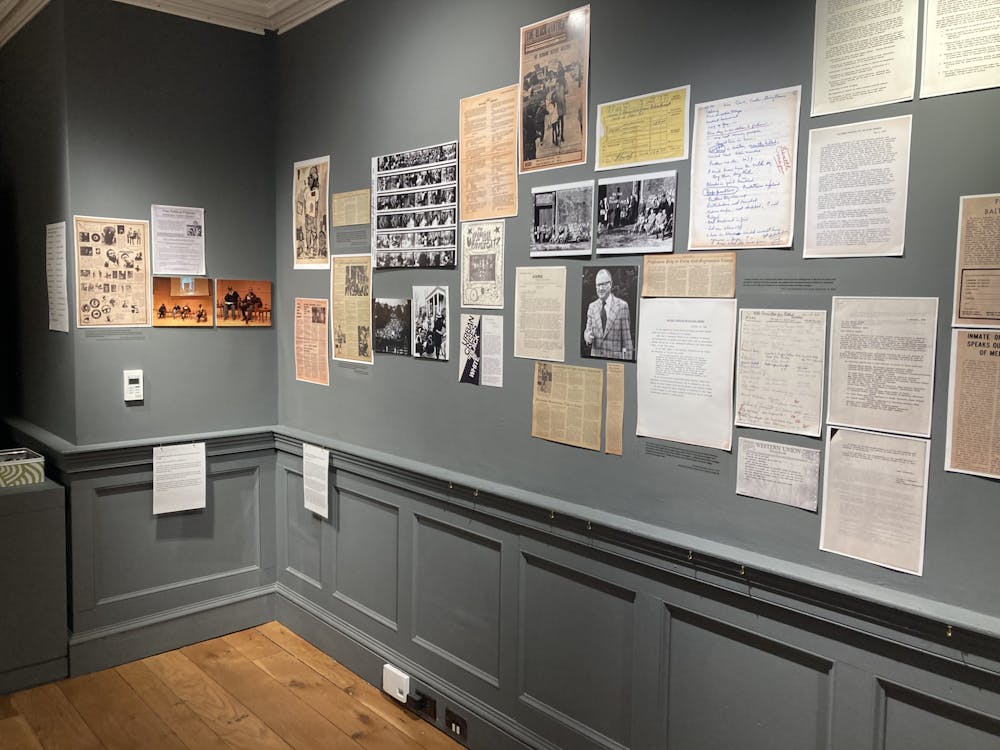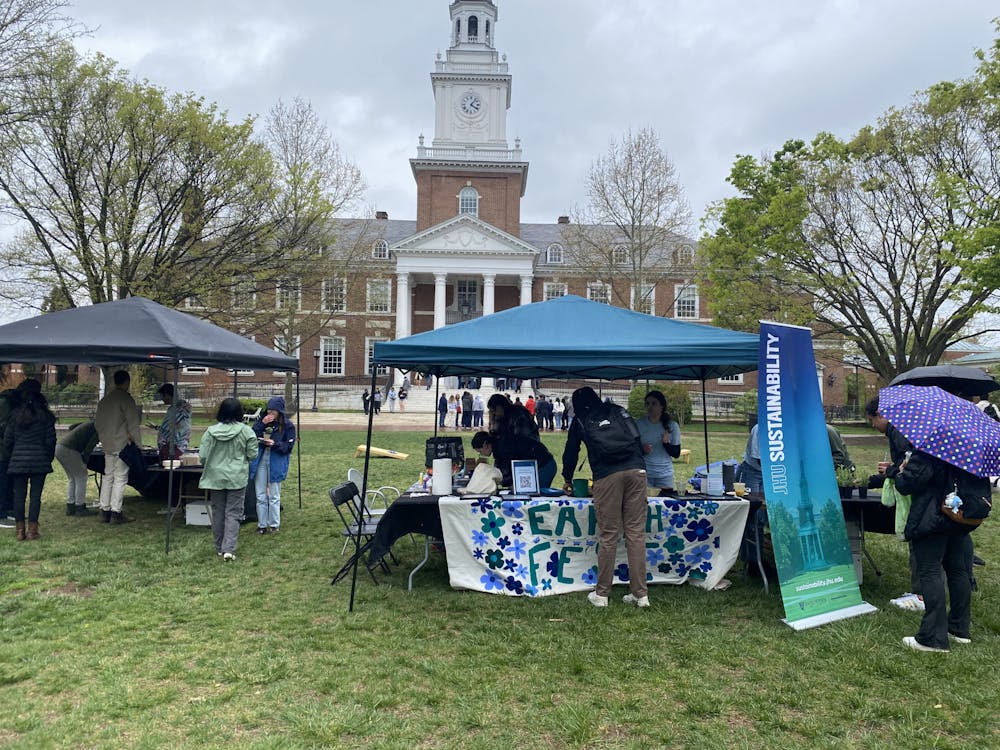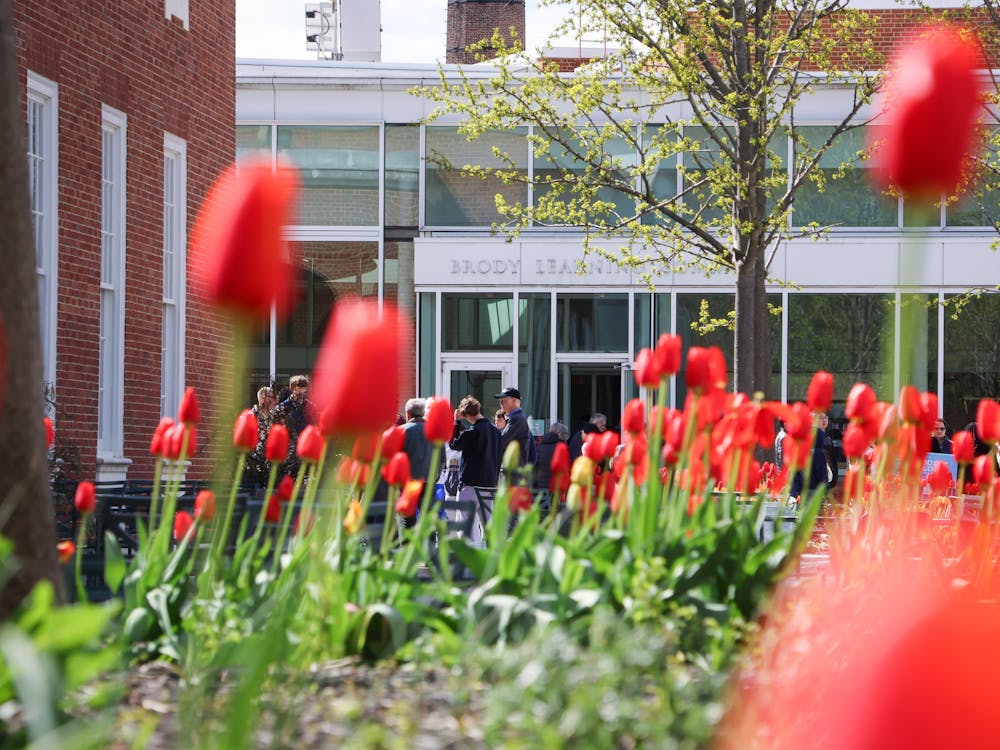By SAM FOSSUM For The News-Letter
Dwight “D.” Watkins, a writer from Baltimore and a Hopkins alumnus, read and discussed his book, The Beast Side: Living (And Dying) While Black in America, at Barnes & Noble on Tuesday.
Watkins described his book as a series of personal narratives, each of which are followed by an analysis and an opportunity for the reader to build on the topics he raises. The event format was informal, with Watkins reading excerpts from his book, talking about his writing and engaging in discussion with the audience.
Watkins described his book as simple and easy to read, taking pride in the text’s ability to engage people from all educational and cultural backgrounds.
“It’s a very simple book. I didn’t write this book for people who love scholarly work. I didn’t write this book for people looking for dense academic solutions. This book does two things,” Watkins said. “If you’re a person from a place like East Baltimore or one of the more challenged parts of our country, then it gives you a chance to, one, be heard, two, see yourself as some of these stories and, three, kickstart you toward some sort of path of thinking about solutions for some of these issues.”
Watkins continued to describe how the book can give those from wealthy backgrounds a new perspective.
“And if you are a person who is not from a challenged place, then it gives you a chance to add a bit of humanity to some of the news stories that are flashing across your screen,” Watkins said. “That was the purpose of this book.”
Watkins proceeded to outline the purpose of his book and his goal for the evening’s event: facilitating the discussion and dissemination of ideas.
“I am really into listening to other people’s ideas and comparing my ideas to your ideas and coming up with different ways that we can all work towards real solutions,” Watkins said. “Hopefully we can have a conversation tonight and talk about some of these things and share some ideas.”
After reading and discussing excerpts from The Beast Side’s introduction and his chapter on food, Watkins spoke about hip hop music. He explained the importance of promoting and celebrating the arts and how it is crucial to delineate between fact and fiction. He strongly believes that we should celebrate artistic creativity while understanding that much of this material is fictional.
“When I was a kid, hip hop was about unity and togetherness, kind of like where it is moving back to now. But, in my teens there was this whole wave of drug rap, gangsta rap,” Watkins said. “The common theme was ‘I’m not a rapper, I’m a hustler’. And we would ignore that the rappers who were making this music were actually successful artists and were changing their communities through art. Now, why aren’t we promoting that? We consume this music, this art, this culture but we don’t really know where some of these come from.”
Later in the evening, when prompted by a question from an audience member, Watkins elaborated on his views on rap.
“These people are artists, making a living off of their art, so you should really celebrate that more than all this fake stuff,” he said.
At the end, Watkins spoke about his education growing up and his belief in the importance of reading. Talking about his favorite book, The Narrative of The Life of Frederick Douglass, an American Slave, Watkins explained how spoke to him, but that they didn’t truly resonate with his generation.
“One of the reasons I think me and my friends weren’t excelling in grade school is because we weren’t reading,” Watkins said. “The Narrative of Frederick Douglass, one of my favorite books, was one of the first books that I ever read in its entirety. I was hooked on Douglass, but he wasn’t speaking to my generation. He wasn’t speaking to us. It connected on certain levels, but not on that level needed for me to become a reader. If we want our kids to make it to the next level and be competitive and make their dreams come true, then they have to read. We have to create a nation of thinkers, that’s the key.”
Sarah Lauture, a School Counseling Fellow and first year graduate student, explained how Watkins’ chapter on the difficulty of schooling in East Baltimore resonated with her personally and with the work she and her classmates are doing.
“Right now, me and my nine fellow classmates are in-practicum, so we are at these schools and noticing exactly what he depicted in that particular chapter. I really appreciate his initiative to teach literacy to kids at a young age, because research proves that before a student drops out physically at the age of 16, they have already left mentally and emotionally in third grade,” Lauture said. “All of these issues — he brings them out so well in this book. And it eventually goes off into the school to prison pipeline. That’s really what it is. You’re prepping them to go to jail.”















Please note All comments are eligible for publication in The News-Letter.